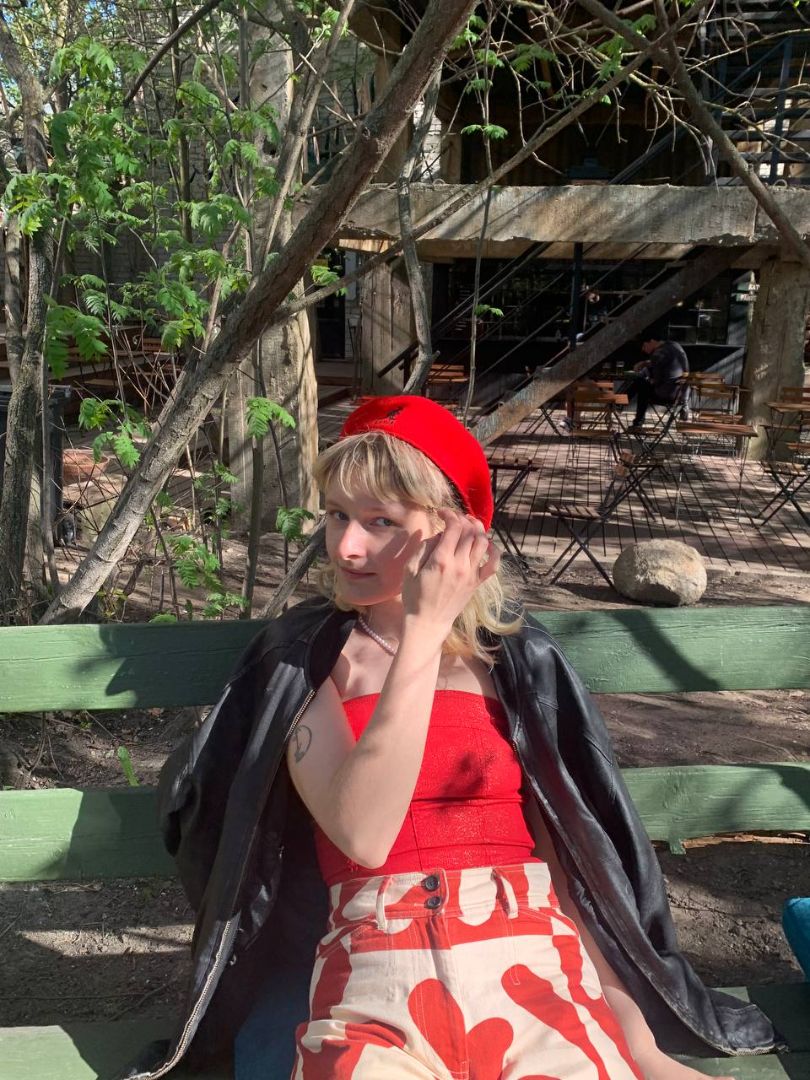This essay was written by Tania Tarasova, age 23, from Estonia in response to the 2023 Global Voices Essay Contest in Central and Eastern Europe. Tania was awarded an honorable mention for this entry.

My mother, who was raised by the same grandmother, used to say that I had no right to complain because someone else was suffering worse. "Are you weaker than everyone else?" she said. "Be enduring," everyone said.
In this essay, I would like to dissect the problem of my social anxiety disorder and its relationship to resilience. I will try to describe the different facets and situations that anxiety has affected and how I have resisted these difficulties.
I am an anthropologist by profession, but I can hardly be one. The very basis of the profession is communication. In three years of undergraduate studies, I have never answered a question out loud in class. All the teachers are aware of my disability, but still occasionally try to ask me something in front of the whole class, to which I just shake my head sympathetically and say nothing. The classroom is filled with uncomfortable silence.
The anxiety that had been carefully nurtured in my childhood began to blossom into something more visible during my school years. I remember going to the blackboard and my eyes becoming blurred. I couldn't understand anything, I couldn't feel anything. I was recovering from the trance when I sat back down at the desk, not remembering what had just happened. I have unconsciously learned to 'switch off' during difficult and frightening moments, so while ordering coffee in a cafe, I switch off. During an awkward silence in class, I switch off.
I studied Japanese at university for more than a year, but I had to quit because we started practicing dialogues on small topics too often. I thought that if I avoided something, I just didn't want to do it. Not because I was afraid, but because I wasn't interested. It's hard to trust myself when I can't distinguish between these two states: avoidance out of fear, or avoidance of something that isn't interesting and doesn't suit me as a person.
Many phobias are solitary. A person may only be afraid of spiders, for example. But a social phobia doesn't stop at one thing, like being afraid of presentations. More often than not, it extends to a fear of authority figures, a fear of being laughed at, a fear of being the centre of attention, a fear of saying "no" and so on. This means that each fear feeds on the next, which is why it is so difficult to manage social fears (Razmakhova 41).
Unconsciously, I have been inventing coping strategies. Some of them are good, some of them only make things worse. For example, I have unknowingly created unhealthy situations for myself so that I have a 'good' reason not to go anywhere. I rejoiced inside when I drove myself to exhaustion with arguments. I rejoiced when I became ill.
When the dreaded social situation was imminent, I tried to reassure myself with the phrase: "You can physically get out of any unpleasant situation.” That's what my grandmother used to tell me, too. It helps a lot to realise that I'm not really locked in a cage. If I feel uncomfortable, I have the right to get up and leave.
I have gone to interviews, university admissions and meetings with this in mind. But there is also the other side of the coin in this phrase. I used it to justify and fuel my desire to hide. Sometimes you could sit still for a while and try to get used to it, but I would run away because all the conditions of the phrase are fulfilled - the situation is unpleasant.
I like to imagine myself as the heroine of the Bridget Jones films. When I get into all sorts of uncomfortable situations, I think: "What a funny moment, the audience is definitely laughing!” So I justify and find meaning in all the embarrassment and shame that goes with me through life. And the meaning is: "This is the story of my life, which has its difficulties. Sometimes the difficulties seem unbearable and sometimes it gets a little easier. But every character has something that hurts them and makes their life harder. I can only try to heal my wounds, but also not be afraid of new ones. There's no other way."
Lately I've been trying a new strategy: to be gentle with myself, but strict. Trying to do things that are scary, but at the same time taking it easy on myself. Surrounding myself with people who understand and accept other people's fears.
Is social anxiety a weakness? Not a weakness, but something that makes life harder, yes. Social anxiety makes you choose not the life you want, but the one that seems safer. But all the while that safety zone is getting smaller and smaller, and you are becoming more and more isolated from society.
Resilience helps to keep that zone a little wider, constantly trying to open it a millimetre at a time.
My ways of being resilient are to laugh at myself, to know that I can walk away at any moment, to be gentle and kind to myself, and to surround myself with understanding people. And even when I can't cope with anxiety, I'm proud of the fact that I keep trying and cultivating resilience. Again and again, even when it is scary to the bone.
References:
1. Размахова, Ольга. Социальная Тревога и Фобия. АСТ, 2019.